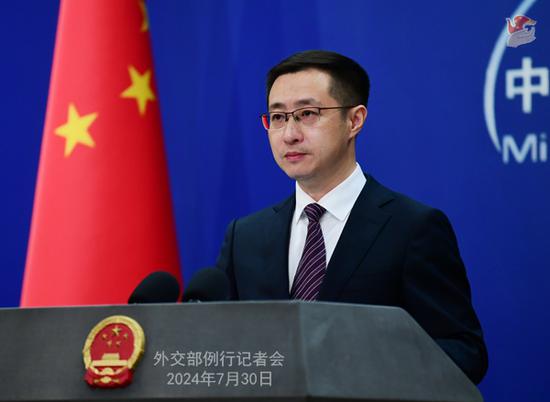
CCTV: China announced that the 2024 Summit of the Forum on China-Africa Cooperation (FOCAC) will be held in Beijing from September 4 to 6, could you share with us the detailed program of the Summit?
Lin Jian: The upcoming summit will be the fourth time that the FOCAC meeting is held in the form of a summit. It will be an event to celebrate China-Africa friendship, explore cooperation and chart the course for the future under the theme of “Joining Hands to Advance Modernization and Build a High-Level China-Africa Community with a Shared Future.” The FOCAC Senior Officials Meeting and Ministerial Conference will be held on September 2 and 3 respectively in preparation for the Summit. From September 4 to 6, the forum will hold a series of activities including the opening ceremony, a welcoming banquet and gala performance, high-level meetings, Conference of Chinese and African Entrepreneurs, and bilateral meetings. This will be yet another friendly gathering of the big China-Africa family in Beijing after the 2018 FOCAC Summit.
Mutual respect, treating each other as equals and joint consultation are important features of FOCAC. The two sides are having intensive communication and consultation on the preparation of the Summit and other activities with the aim of carrying forward the spirit of China-Africa friendship and cooperation and making this Summit yet another symbol of China-Africa friendship and solidarity. With the joint effort of China and Africa, the 2024 FOCAC Summit will be a great success, open up new vistas for China-Africa relationship and write a new chapter of building a China-Africa community with a shared future.
Reuters: The Inter-Parliamentary Alliance on China said several international lawmakers attending their summit in Taipei had received phone calls and emails from Chinese officials and that it was an attempt to affect the summit. Do you have a comment on that matter?
Lin Jian: The so-called “alliance” you mentioned is hellbent on attacking China on various issues and spreading lies and rumors about China and has no credibility to speak of. There is only one China in the world, and Taiwan is an inalienable part of China’s territory. The Taiwan question is purely China’s internal affair that brooks no external interference. China firmly opposes official interaction of any form between the Taiwan authorities and countries that have diplomatic relations with China. We urge relevant lawmakers to abandon ideological bias, stop using the Taiwan question to interfere in China’s internal affairs, and act in the interest of bilateral ties, not otherwise.
AFP: My question follows on the Inter-Parliamentary Alliance on China. The Taiwanese leader Lai Ching-te has addressed that summit. And he said that “a threat from China to any country is a threat to the world.” And he also has urged global democracies to unite against what he calls “authoritarian expansion.” What’s China’s response to these remarks?
Lin Jian: There is only one China in the world, and Taiwan is an inalienable part of China’s territory. The Taiwan question is purely China’s internal affair that brooks no external interference. As I’ve just said, the so-called “alliance” you mentioned is hellbent on attacking China on various issues and spreading lies and rumors about China and has no credibility to speak of.
Let me stress once again that “Taiwan independence” is as incompatible with cross-Strait peace as fire with water. Separatism for “Taiwan independence” is the most serious challenge facing the international order, the most dangerous attempt to alter the status quo that both sides of the Taiwan Strait belong to one and the same China, and the biggest detriment to cross-Strait peace. The Lai Ching-te authorities’ attempts to seek “Taiwan independence” by force will prove to be futile. They are not making Taiwan any safer by squandering money on weapons, but are turning Taiwan into a cash machine for the countries selling the weapons. No matter how they try to beef up “national defense” and pedal the “democracy versus authoritarianism” narrative, they will not stop the trend towards China’s reunification.
The one-China principle is a basic norm governing international relations and prevailing international consensus. It is where global opinion trends and the arc of history bends. The Lai Ching-te authorities’ attempt to seek independence, make provocations and resist reunification by force will lead nowhere.
Bloomberg: Just now you said that Lai Ching-te has used force to seek independence. I’m just wondering, can you give us one example of a time that he’s used force?
Lin Jian: Just now I mentioned how the Lai Ching-te authorities have been trying to seek “Taiwan independence” by force. They are not making Taiwan any safer by squandering money on weapons. No matter how they try to beef up so-called “national defense,” they will not stop the trend towards China’s reunification.
Global Times: It’s reported that the Japan-U.S. 2+2 meeting was held in Tokyo on July 28 and a joint statement was issued with concerns regarding China’s ongoing and rapid expansion of its nuclear weapons arsenal. In the meanwhile, the two sides convened the first ministerial meeting on extended deterrence, and demonstrated to the world the importance of the two sides sharing the U.S. nuclear umbrella. U.S. Secretary of Defense Lloyd Austin stressed that extended deterrence is at the core of the U.S.-Japan Alliance. What’s China’s response?
Lin Jian: China noted the report and expresses grave concern over the statement and comments. China follows a policy of “no first use” of nuclear weapons and a nuclear strategy that focuses on self-defense. China always keeps its nuclear strength at the minimum level required by national security, and never engages in arms race with anyone. For any country, as long as they do not use or threaten to use nuclear weapons against China, they will not find China’s nuclear weapons to be a threat.
Extended deterrence is a Cold War relic. Strengthening U.S.-Japan collaboration on nuclear deterrence will stimulate regional tensions, and heighten risks for nuclear proliferation and conflict. Japan has long characterized itself as a victim of nuclear explosion and an advocate of a nuclear-weapons-free world, but all the while, it has been sitting comfortably under the U.S.’s nuclear umbrella, pursuing extended deterrence, and seeking “nuclear deterrence.” Japan owes the world an explanation for saying one thing and doing another.
China calls on the U.S. and Japan to abandon the Cold War mentality, reduce the role of nuclear weapons in national and collective security policies, and take concrete actions to uphold strategic stability and regional peace and security. We call on Japan to take a hard look at its strategic security policy, earnestly fulfill its obligations as a non-nuclear-weapon state pursuant to the Treaty on the Non-Proliferation of Nuclear Weapons, abide by its Three Non-Nuclear Principles, and refrain from seeking nuclear weapons in any form.
AFP: The Venezuelan electoral council has announced that President Maduro has been reelected. China has already congratulated President Maduro on his reelection. But the U.S., the EU, the UK, Italy, Spain, Brazil, Peru, Chile, as well as the United Nations have all cast doubt on the accuracy of that election result. So I’d like to ask, does China believe that the Venezuelan election was free, fair and transparent? What is China’s comments on the violent protests going on at the moment in Venezuela?
Lin Jian: On Venezuela’s election, I made clear China’s position yesterday. The Venezuelan people’s choice should be respected. We believe the Venezuelan government and people are capable of handling their internal affairs.
Dragon TV: Today marks the 25th anniversary of the signing of the MOU between the governments of the People’s Republic of China and Japan on the destruction of the chemical weapons abandoned by Japan in China. Can you update us on how the work is progressing and whether China has any concerns?
Lin Jian: Japan’s abandoned chemical weapons (ACWs) in China mark one of the gravest crimes that Japanese militarists committed during the war of aggression against China. Even today, they still pose a serious threat to the safety of the life and property of the Chinese people and the ecological environment. China takes the issue of Japan’s ACWs very seriously, and has been urging Japan to destroy them safely, completely and thoroughly at an early date in accordance with the Chemical Weapons Convention and the MOU between the two countries’ governments.
With the active assistance from the Chinese side, Japan has excavated and retrieved about 130,000 ACWs and destroyed nearly 100,000. However, due to inadequate and unevenly distributed inputs from the Japanese side, the destruction process is generally seriously lagging behind schedule, the implementation of the destruction plan has missed the deadlines four times, and some key and thorny issues remain unsettled, which has severely held back and stood in the way of the destruction process.
To remove the hazardous ACWs is Japan’s unshirkable historical, political and legal responsibility. China calls on Japan to take seriously China’s concerns, earnestly fulfill its responsibility under relevant convention, increase inputs in all respects, do everything possible to speed up the disposal process, and fully and faithfully implement the destruction plan in its entirety, so that the day will come sooner when the Chinese people no longer have to live on soil tainted by ACWs.
CRI: It’s reported that the situation in Bangladesh has gradually calmed down, and life and work there have come back to normal. In the meanwhile, some countries have expressed concerns on Bangladesh’s situation. What’s China’s comments?
Lin Jian: China noted that the situation in Bangladesh has come under control and social order has resumed. The Chinese side is heartened by that as Bangladesh’s friend and close neighbor.
China and Bangladesh are comprehensive strategic cooperative partners. China stands ready to work with Bangladesh to deliver on the important common understandings reached by the leaders of the two countries during Prime Minister Sheikh Hasina’s visit to China, deepen the comprehensive strategic cooperative partnership between the two countries, and deliver more benefits to the two peoples.
Hubei Media Group: Today marks the 32nd anniversary of China joining the Universal Copyright Convention. What are China’s efforts and achievements in intellectual property right (IPR) protection? What kind of opportunity does that bring for the world?
Lin Jian: China attaches great importance to the development of copyright industries and the protection of copyright. Since joining the Universal Copyright Convention in 1992, China has amended its Copyright Law and joined the Marrakesh Treaty to stay up-to-date with the latest progress and standards. The legal framework for copyright protection has been significantly improved and the number of registered copyright has gone over 8.92 million.
China’s work on copyright protection is a reflection of China’s larger effort on IPR protection. In recent years, China has been strengthening protection of all sorts of IPR including patent, trademark, copyright, geographical indication and so on, to support China’s high-quality development. China is fully involved in global IPR governance under the framework of the World Intellectual Property Organization (WIPO) and has deepened institutionalized exchanges with the United States, Europe, Japan, South Korea and BRICS countries. China is committed to providing equal IPR protection and a fair, open and transparent business environment for domestic and foreign enterprises alike. AstraZeneca increased its investment in China after winning a drug patent dispute, Ford holds some 9,000 patents and 1,500 trademarks in China. Over 5,000 foreign and joint venture enterprises have registered with the national IPR protection centers and fast IPR service centers. These are evidence of an increasingly friendly IPR ecosphere in China and greater confidence it has received from foreign businesses.
High-quality development needs innovation. To protect IPR is to protect innovation. Not long ago, the Third Plenary Session of the 20th Central Committee of the Communist Party of China was successfully held. The session calls for better systems underpinning the market economy, a more effective system for the comprehensive management of intellectual property rights, and stronger law enforcement and judicial protection for property rights. China will stay committed to high-standard opening up, enhance capacity for IPR protection, deepen international exchanges and cooperation, align with high-standard international economic and trade rules, provide foreign enterprises with a better business environment, and steer the international IPR governance towards greater justice and equity, so that humanity will always benefit from the kindling power of intellectual property and share the fruits of innovation.
Bloomberg: U.S. intelligence officials say China is among the nations recruiting Americans to spread propaganda advancing their interests before the U.S. presidential election. Would the Foreign Ministry like to comment on that?
Lin Jian: China has never and will never interfere in the presidential elections of the U.S.. The U.S. side should not spread disinformation to vilify China and should not make China an issue in U.S. elections.
Beijing Daily: It was reported that Malaysia’s Prime Minister Anwar Ibrahim wrote on a social media platform a few days ago that he appreciates the Chinese government’s effort to facilitate discussions between Fatah, Hamas and other factions of Palestine, and hopes that the Beijing Declaration will translate into tangible results. He once again called for governments around the world to recognize the State of Palestine and encourage such unity efforts. What is China’s comment?
Lin Jian: China appreciates the comment of Prime Minister Anwar Ibrahim, which reflects the common expectation and aspiration of the international community, including the vast Arab and Islamic states, for an early settlement of the Palestinian question and the realization of peace and stability in the Middle East.
On promoting the internal reconciliation of Palestine, China’s hope and direction of effort are highly identical with those of the vast Arab and Islamic states. China stands ready to step up communication and coordination with Malaysia and other parties, work for the implementation of the Beijing Declaration, and play a constructive role for peace and stability in the Middle East.
Beijing Youth Daily: My colleague asked a question about the Japan-U.S. 2+2 meeting and the Japan-U.S. ministerial meeting on extended deterrence. In addition to these two events, the Japan-Australia-India-U.S. Foreign Ministers’ Meeting was also held in Tokyo on Sunday and Monday. The joint statement issued by the Japan-U.S. 2+2 meeting criticized China’s foreign policy. What’s China’s comments?
Lin Jian: Despite China’s grave concerns, Japan and the U.S. grossly interfered in China’s internal affairs on Taiwan, Hong Kong, Xinjiang, and Xizang, and falsely accused China on maritime issues. Under the Cold War mentality, those two countries have been practicing bloc politics, inciting bloc confrontation, damaging regional peace and stability, and harming other countries’ security interest. China firmly opposes this and has lodged serious protests with the Japanese side through diplomatic channel. We call on Japan to view China in an objective and rational light, stop its political manipulation on China’s domestic affairs, stop making provocations on maritime issues, stop ganging up with countries outside the region to create division and confrontation in the region, follow a path of peaceful development, and earn the trust of its Asian neighbors and the wider international community through concrete actions.








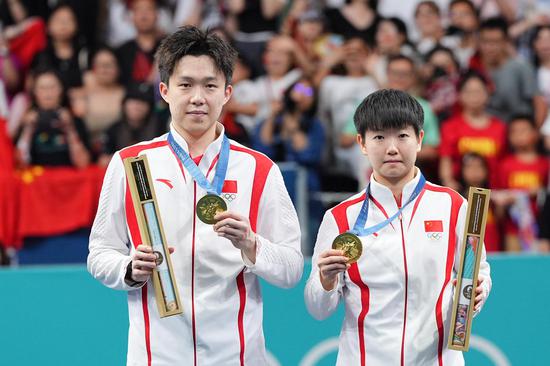

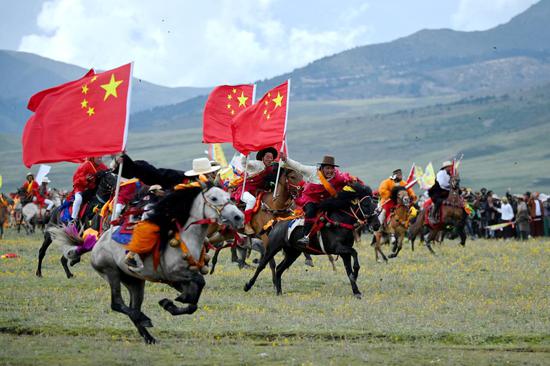
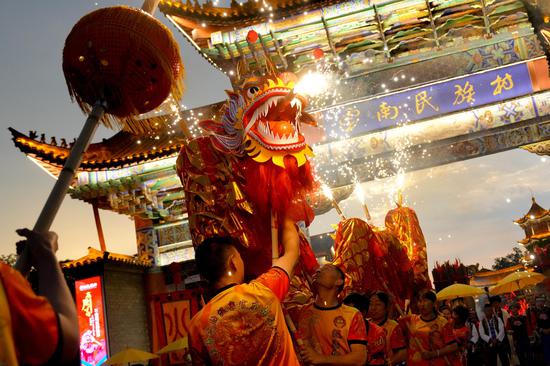

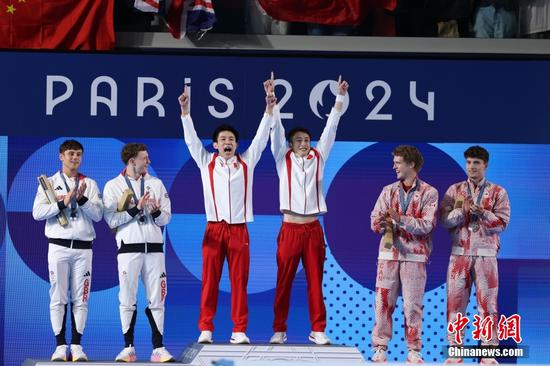
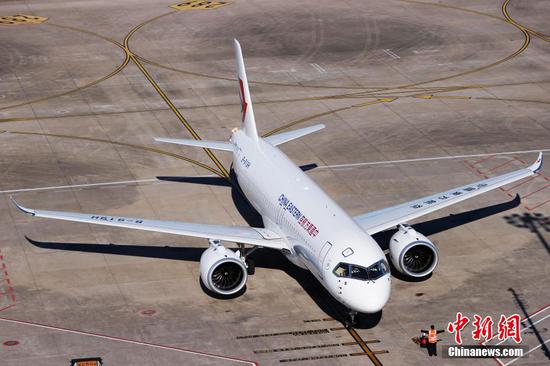
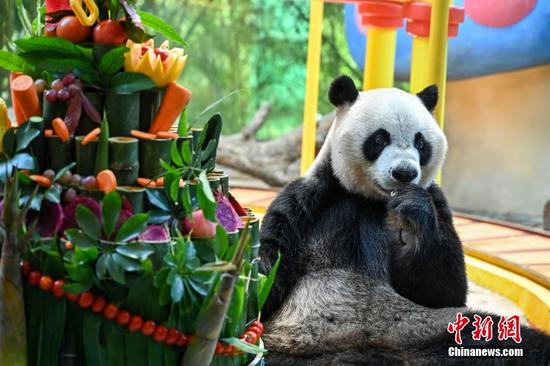
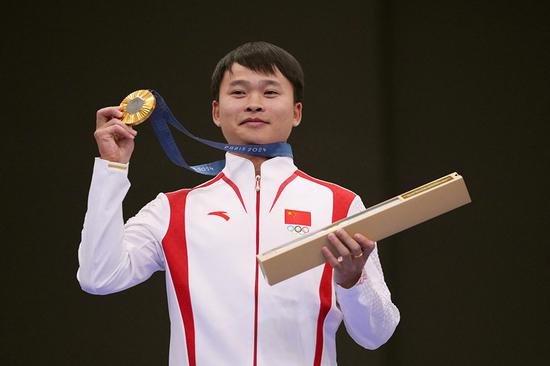
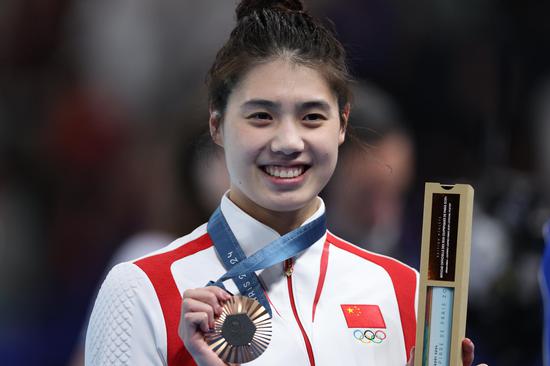
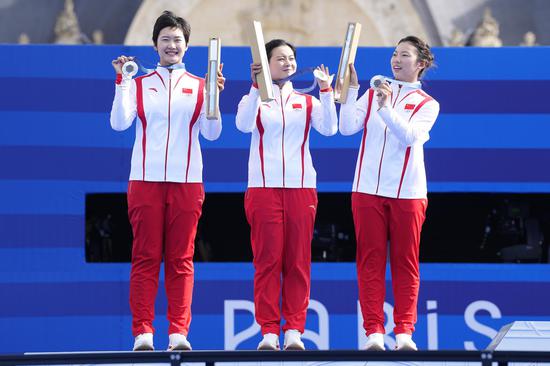





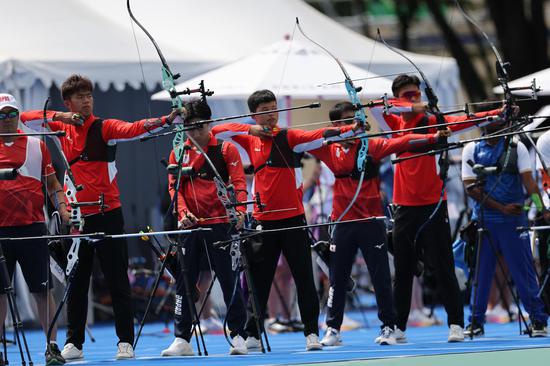
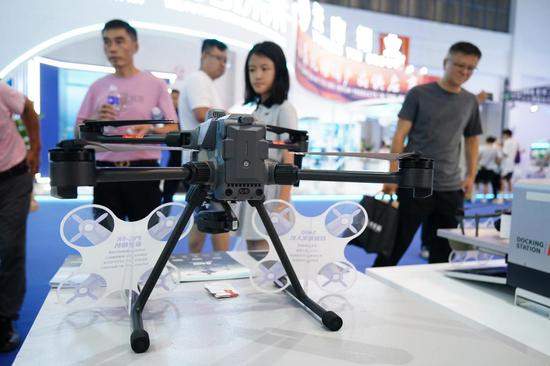
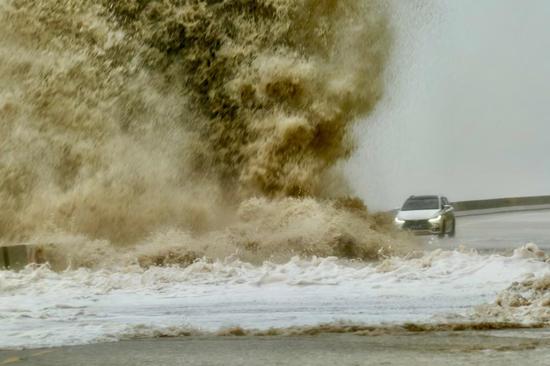
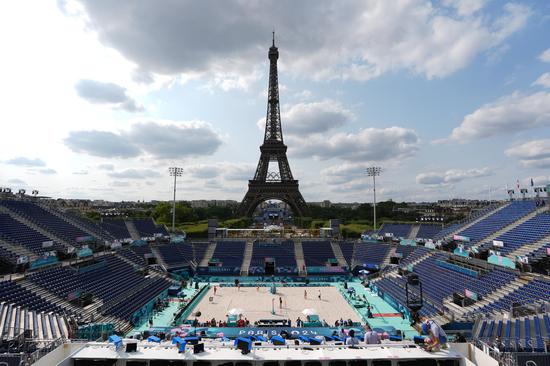



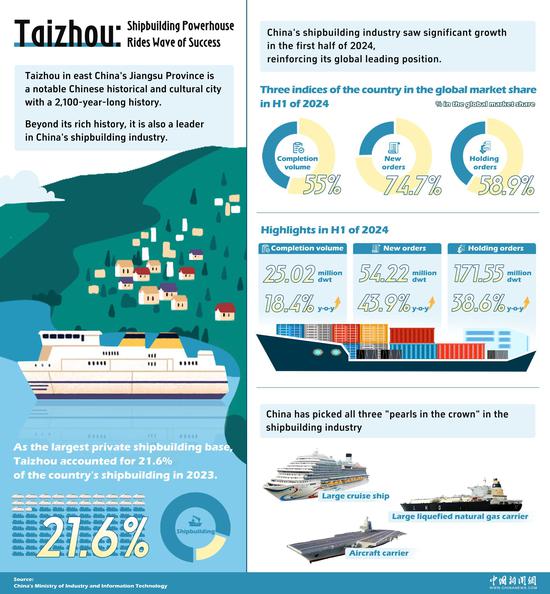
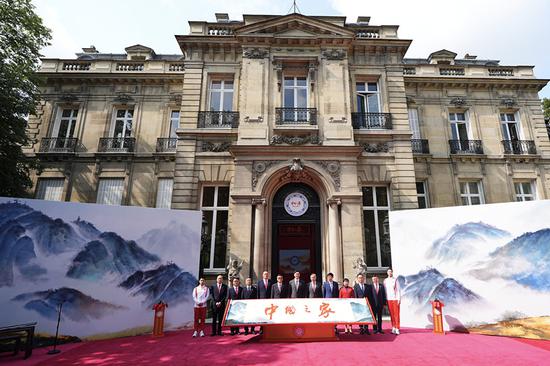
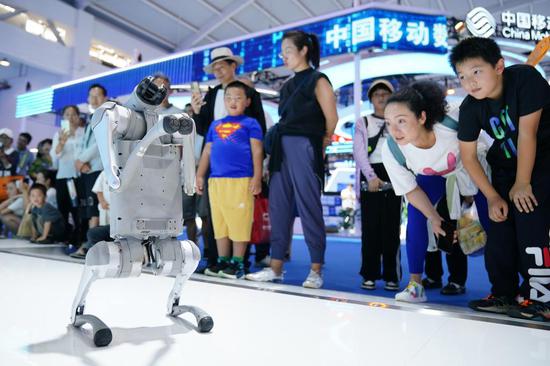

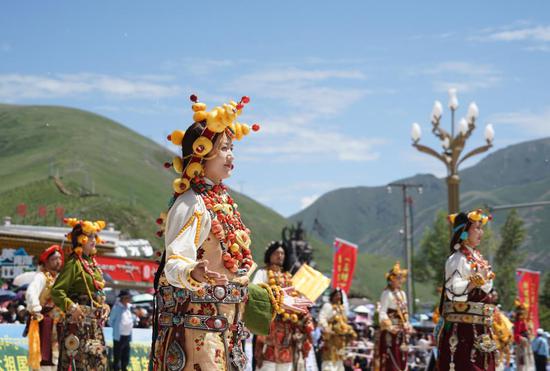
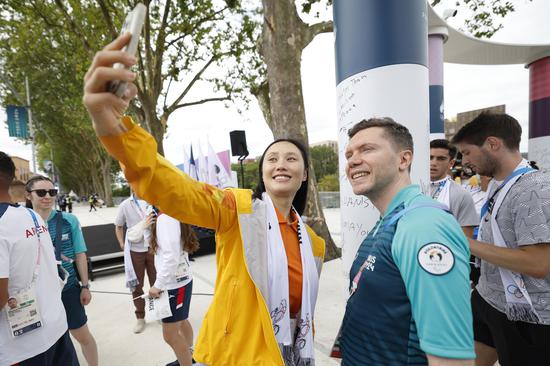

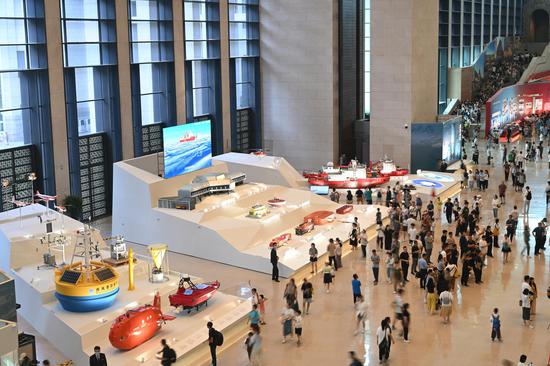

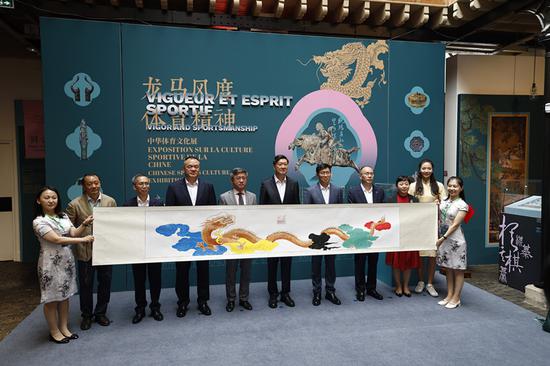
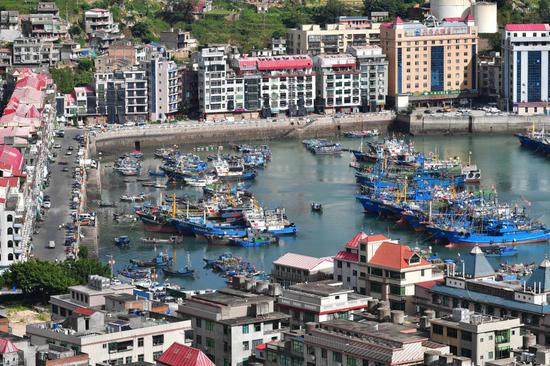
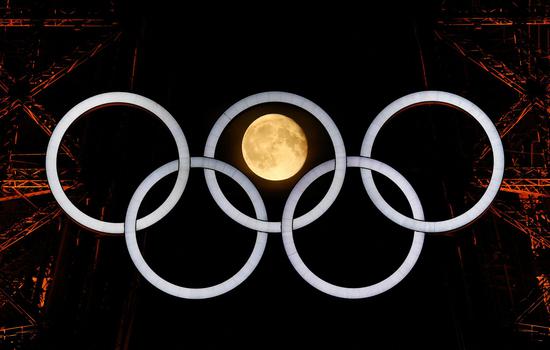
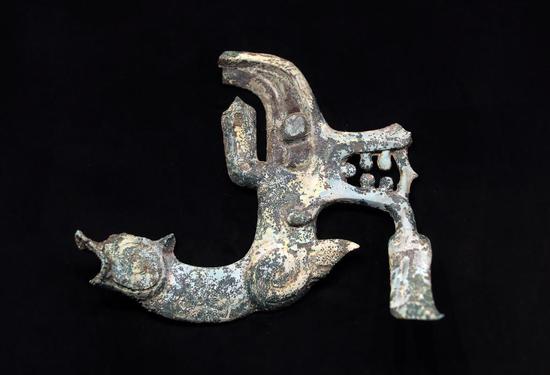

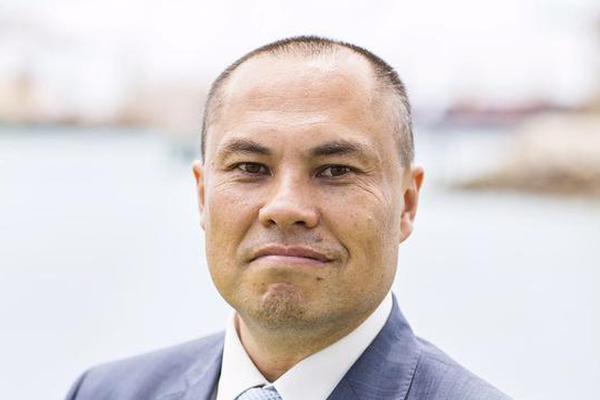

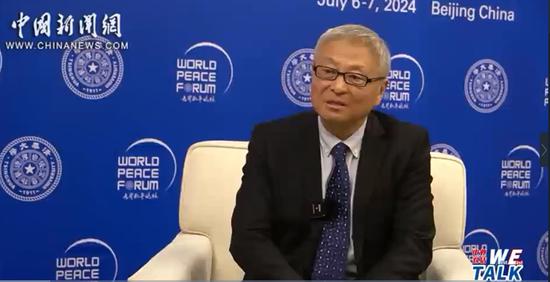

 京公网安备 11010202009201号
京公网安备 11010202009201号